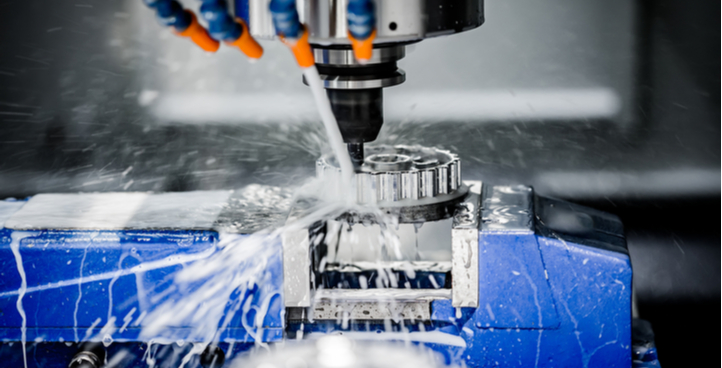When it comes to precision machining, milling services San Diego play a vital role in crafting high-quality CNC machined parts that meet the strictest standards in various industries. Whether you’re involved in aerospace, automotive, medical, or electronics manufacturing, the milling process is essential to producing parts that are both functional and precise. But what exactly do milling services entail, and how can you choose the right machining shop to ensure your manufacturing project is a success?
Table of Contents
When it comes to precision machining, milling services San Diego play a vital role in crafting high-quality CNC machined parts that meet the strictest standards in various industries. Whether you’re involved in aerospace, automotive, medical, or electronics manufacturing, the milling process is essential to producing parts that are both functional and precise. But what exactly do milling services entail, and how can you choose the right machining shop to ensure your manufacturing project is a success?
In this article, we’ll explore the fundamentals of milling services, their benefits in precision manufacturing, and key factors to consider when selecting a machining shop for your next project.
What Are Milling Services in Precision Manufacturing?
Milling is a subtractive manufacturing process that uses rotating tools to remove material from a workpiece. The process can be done using a variety of machines, but CNC machining (Computer Numerical Control machining) is the most common and advanced method in modern precision manufacturing. It involves the use of computerized programs to control the movements of the cutting tool, ensuring high precision and repeatability in every part.
Key Milling Processes Used in Precision Machining
Milling services can be broadly divided into two types based on the direction of the cut: vertical milling and horizontal milling.
• Vertical Milling: In vertical milling, the cutting tool is mounted vertically and rotates to remove material. This method is ideal for creating parts with flat surfaces, contours, and slots.
• Horizontal Milling: Horizontal milling uses a horizontally oriented cutting tool, allowing for deeper cuts and the ability to handle larger workpieces. This type of milling is suitable for complex, multi-part designs.
Regardless of the type of milling, the goal is to create CNC machined parts with precision and consistency, meeting exact design specifications.
Why Milling Services Are Crucial for Precision Machining
Milling is an essential part of precision machining due to its ability to produce highly accurate parts that meet tight tolerances. Let’s dive into why milling services are so critical in the world of manufacturing.
1. Unmatched Precision
One of the primary reasons milling services are so widely used in precision machining is their ability to deliver unparalleled accuracy. Modern CNC machining allows for extremely tight tolerances, often within thousandths of an inch, which is crucial for industries like aerospace, medical devices, and electronics.
• Tight Tolerances: The precision achieved in CNC machining ensures that parts fit together perfectly, which is especially important for assemblies where even minor variations could lead to malfunction.
• Consistency: Once programmed, CNC machining can replicate the same cut with exact precision across thousands of parts, ensuring consistency in every piece produced.
2. Ability to Create Complex Geometries
Milling allows for the creation of complex, intricate geometries that would be impossible to achieve with traditional methods. By using multiple axes of movement, CNC machining can produce parts with various angles, contours, and holes, making it ideal for applications that require high levels of detail.
• Multiaxis Machining: With CNC milling, it’s possible to machine parts on multiple axes, providing the flexibility to create complex shapes with high precision.
• Complex Designs: Whether you need gears, custom molds, or components with tight-fitting tolerances, CNC machined parts can be produced to meet your unique design requirements.
3. Faster Production Time
The use of CNC machining in milling services significantly speeds up the production process compared to traditional manual machining methods. Once a program is written and tested, CNC machines can run continuously, producing parts with minimal downtime.
• High-Speed Production: Automated milling systems can operate 24/7, allowing manufacturers to meet tight deadlines and reduce the time required to complete a project.
• Reduced Labor Costs: Automation also reduces the need for manual labor, resulting in cost savings for both manufacturers and clients.
4. Versatility Across Industries
Milling services are versatile and can be applied to a wide range of industries and applications. From producing small components for medical devices to large-scale parts for the aerospace industry, CNC machining is adaptable to meet the needs of almost any manufacturing project.
• Automotive and Aerospace: In these industries, milling is used to create complex parts like engine components, turbine blades, and structural elements.
• Medical Devices: Precision milling is used to produce medical instruments, implants, and prosthetics with high precision, ensuring safety and functionality.
• Electronics: Milling services are used to create circuit boards, housings, and components that require tight tolerances and complex features.
How to Choose the Right Machining Shop for Your Milling Services
Choosing the right machining shop for your milling services can have a significant impact on the outcome of your project. Here are some factors to consider when selecting a shop:
1. Experience and Expertise
One of the most important factors in choosing a machining shop is the shop’s experience with CNC machining and milling services. A well-established shop with years of experience will have the knowledge and expertise to handle even the most complex milling projects.
• Industry Knowledge: If your project is industry-specific (e.g., medical devices or aerospace), choose a shop with experience in that field. This ensures they are familiar with the unique materials and quality standards required.
• Prototyping Capabilities: If you need prototypes before moving to full-scale production, make sure the shop can handle prototyping and offer flexibility in design adjustments.
2. Quality Control and Precision Standards
The quality of the parts produced is directly tied to the machining shop’s commitment to quality control. Look for a shop that uses advanced measurement tools and techniques to ensure that every part meets your required specifications.
• Certifications: Many top machining shops hold certifications such as ISO 9001, which ensures that they adhere to strict quality control processes.
• Inspection Processes: Ensure that the shop has robust inspection protocols, such as the use of CMM (Coordinate Measuring Machines) and other advanced tools to check the accuracy of each part.
3. Equipment and Technology
The technology and equipment used by the machining shop play a crucial role in the quality and efficiency of your project. Ensure that the shop uses modern CNC machining equipment that can handle the complexity and precision required for your parts.
• Multiaxis Machines: A shop with multiaxis CNC machines can handle more complex milling projects and produce parts with multiple features and angles in a single setup.
• Up-to-Date Equipment: Make sure the shop uses up-to-date machines capable of high-speed cutting and producing the desired finishes.
4. Lead Time and Cost
When selecting a machining shop, it’s essential to consider both lead times and cost-effectiveness. While precision machining may come with a premium price tag, the shop should still provide value by delivering on-time, high-quality parts.
• Lead Time: Discuss your project’s deadlines upfront. A good shop should be transparent about their lead times and be able to meet your schedule.
• Pricing: Ask for a detailed quote that outlines the cost of materials, machining, and any additional services. Be wary of prices that seem too low, as they may indicate subpar quality or inadequate capabilities.
5. Customer Service and Communication
Effective communication is key to ensuring that your milling services run smoothly. Choose a machining shop that values customer relationships and provides clear, responsive communication throughout the process.
• Transparency: A reliable shop will keep you updated on the status of your order and address any issues that arise during production.
• Customer Support: Strong customer support ensures that you can get assistance when needed and that any concerns are addressed promptly.
Conclusion
Choosing the right machining shop for your milling services is critical to ensuring the success of your project. With the right equipment, expertise, and commitment to quality, CNC machining can produce parts with the precision, speed, and complexity required by modern industries. By evaluating the shop’s capabilities, industry experience, quality control measures, and customer service, you can confidently select a partner that will deliver exceptional results.
Remember, whether you’re working on a single prototype or a high-volume production run, the right machining shop San Diego will help you achieve your precision manufacturing goals and ensure that your CNC machined parts meet the highest standards of quality and performance.





More Stories
Great Expectations Floor Restoration Boise: Bringing Your Hardwood Floors Back to Life
On-Site Public Insurance Claims Adjuster Los Angeles: Why Local Expertise Makes All the Difference
Renovate Builders Remodeling Seattle: Transforming Homes with Expert Craftsmanship